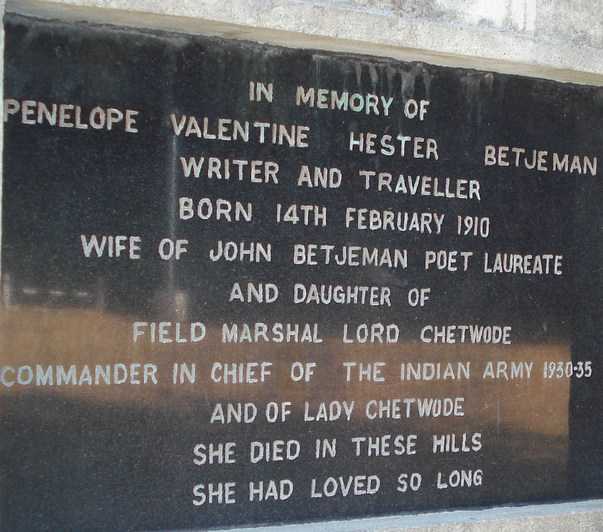Penelope Chetwode first came to Shimla in 1930 to live at Snowdon with her father Field Marshal Philip Walhouse Chetwode, Commander-in-Chief, in India. Her first trip to the Kullu valley was in 1931 with her mother, Hester Alice Camilla, when the arrangement for the tour was made by the ADC of the C-in-C, Geoffrey Kellie, who also accompanied them on the tour.
The Indian Himalayas haunted her when she was back in England, so returned here in 1963 and organised her own mule trek passing through Fagu, Theog, Narkanda, Ani, Khanag to cross the Jalori Pass to go to Larji, Aut and Banjar and eventually reached Rohtang Pass and returned to Shimla through Bashleo Pass, Sarahan, Arsu and Rampur.
Based on this tour, she wrote a book “Kulu: The End of the Habitable World”. Why did she write “The end of the habitable world?” She says, “According to an ancient tradition, the original name of Kulu valley was Kulantpitha, meaning ‘the end of the habitable world’, and anyone who has stood at the top of the Rohtang Pass, the boundary between Kulu and Lahaul, will understand this name.”
She had hired two mules for Rs 20 a day for four weeks from a grocer at Sanjauli. The younger mule was called Shanti and it carried Penelope and the older one, Durgi, was her luggage carrier. Bhagvat Ram, called BR by Penelope, was syce with the mules. These four made the difficult journey of about 150 miles passing through Jalori and Bashleo Passes. The book gives factual information about various places and temples in the Kullu valley with humour sprinkled here and there. When she asked a Forest Officer whether water flows in the taps of the Rest House? The Forest Officer replied, “No time: oftenly it is coming and oftenly it is not coming.” Then there was a young Forest Officer at Larji Rest House who wanted to sleep with her for a night. She told him that she, at 53 years, was like her mother and that he should immediately quit her room. She writes, “It was an unpleasant experience at the time, but on reflection I was flattered.”
Penelope was married to Sir John Betjeman, poet laureate of the UK and towards the end of his life, he was asked if he had any regrets, “Yes,” came the disarmingly frank reply. “Not enough sex.” David Derbyshire, in 2007, had disclosed that the poet had been torn between his loyal wife, Penelope, and his long-standing mistress, Lady Elizabeth Cavendish. On the other hand devoted and trustworthy Penelope writes, “Being called Penelope, I had to live up to my name and remain faithful to my dear old Ulysses, John Betjeman.”
Recently, when I crossed Jalori Pass and was whiling away a little time at
Khanag Rest House, I saw at the end of the lawn, a plaque (see photo) mounted in memory of Penelope Chetwode. The chowkidar told me that it had been raised on the ashes of Penelope. I googled and culled out that in April 1986 Penelope came again and, with others, went to Dalash, a village situated at 6000 feet in outer Seraj. She was to go to the temple at Mutisher but the direct route was blocked due to a landslide and fallen trees. Porters there told the party to take ponies by a longer way round to Mutisher but the determined Penelope climbed the ascent with two other members of the group, including a nurse. They reached Mutisher in three hours. After paying obeisance there, she returned and hardly had climbed down three steps than she rested her head on the wall. The nurse did all, but Penelope was no more. The villagers of Khanag cremated her and her ashes were scattered in the Beas as per her wishes.
In 1986, her granddaughter Imogen Lycett Green set off for India to raise the memorial stone that I had seen at Khanag. It is an idyllic salutation to Penelope.
TAILPIECE
“When an Indian woman is beautiful, she is more beautiful than any other woman of any other race, for it is not her features only which are perfect, but the rhythmic grace of her every movement.”— Penelope Chetwode
— The writer is a retired bureaucrat
Unlock Exclusive Insights with The Tribune Premium
Take your experience further with Premium access.
Thought-provoking Opinions, Expert Analysis, In-depth Insights and other Member Only Benefits
Already a Member? Sign In Now











